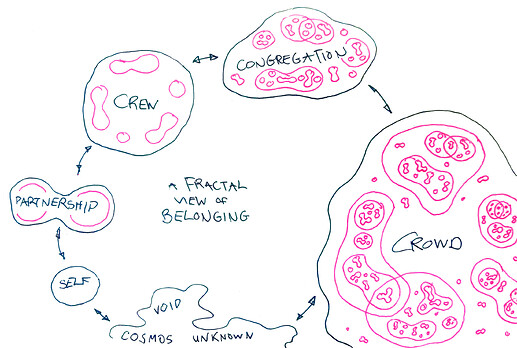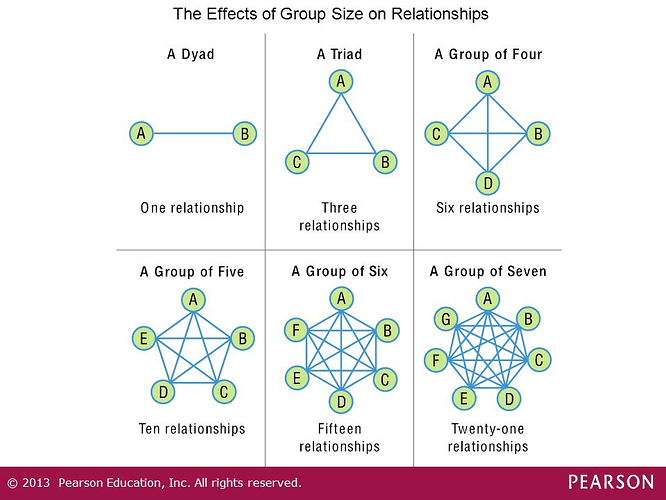The following are my lit notes from the 5 intro essays on the Microsolidarity website:
I first heard of this project from Richard Bartlett’s interview on The Blockchain Socialist podcast.
Microsolidarity is Rich Bartlett’s attempt to frame and operationalize techniques for building ground up solidarity groups in a democratic manner. I think some of these techniques could be valuable for not only the way Fission organizes itself, but also how we interact with the wider ecosystem, including Working Groups.
These are a bunch of selected quotes and points from the five essays if you don’t have time to read them yourself. Any of my commentary is ==highlighted==
- Author: Richard Bartlett
- Enspiral
- co-founder at Loomio
- also at the Doing Better Work Together conference
- The first objective of microsolidarity is to create structures for belonging.
- we’re more courageous & creative when we “find our people”
- Emotional intimacy before economic intimacy
- “If you want to do high-stakes economic collaboration, we recommend building up the skills, experience and trust with gradually escalating commitment”
- makes me think automatically throwing people into OpenCollective might not be the best idea… they need to be coached and networked and then graduate to that
- As we escalate in commitment, we also escalate in group size
- different-sized groups are good for different things (there are things that small groups can do that big groups can’t, and vice versa)
- 5 group sizes:
- The self-as-a-group
- The dyad (2 people)
- The crew (about 3-5)
- The congregation (about 15-150)
- The network of congregations
- Self: a network of overlapping identities who share custody of this body called Me.
- eg “there’s a part of me who wants X, but another part wants Y…”
- a foundational part of the practice of microsolidarity: cultivating friendliness towards yourself
- Dyad: relationship with another
- domination is unilateral; partnership is reciprocal.
- Domination relationships are the root of all injustice, and partnership relationships are the root of all freedom.
- Crew: all the parts are plugged into a coherent whole
- ≅3-6 people… two pizzas I guess?
- most action happens at this level
- Congregation:
- about getting together
- site of crew-formation: the “minimum viable purpose”
- Network:
- a conglomeration of congregrations
- group size and relationships
- 2 people 1 relationships
- 3 people 3 relationships
- 4 people 6 relationships
- 5 people 10 relationships
- 6 people 15 relationships
- etc

- Coordination costs scale nonlinearly with group size: a group of 5 people has 10 relationships, but a group of 50 has 1225. That’s 1225 possibilities for interpersonal tension, conflict & mistrust.
- growth always happens inside of something else
- Microsolidarity communities are designed to distribute authority and maximise autonomy, but are not not hierarchical
- Not all hierarchies are domineering
- If you grew up in a WEIRD (Western Educated Industrialised Rich Democratic) country you’re steeped in the lineage of thousands of years of domination-based society.
- “Partnership” is when we join together in networks of free association, where people are linked by shared interests and diverse competencies. People with power use it to elevate others.
- “Domination” is when we’re organised into hierarchies and people are ranked in order of power & importance. People with power use it to make others smaller.
- wrt leadership, think hospitality rather than authority— think about host and guest, rather than boss and employee.
- anyone can do an “act of leadership”
- Principles of Leadership:
- temporary
- liberatory (activating others)
- legitimate
- accountable
- always a teacher, always a learner
- effective
- growing
=={wonder if we can extend this with some qualities of Wisdom in Leadership here}==- becoming a practitioner of microsolidarity includes: skills (eg meeting facilitation, conflict resolution, or introspection), reputation, and character
==(there is the Wisdom!)== - minimum is “interior curiosity”
==(basically what Chad always refers to as 自覚 _jikaku_ or cultivating self awareness)==
Endnote
There is much more on the site including a section on practices, links to their Discord, events, and many other resources. I might return here to add more as I learn more.
One thing I would like to highlight is their practice of “Crewing”, where talks about how at Enspiral they form “pods” which is something we do here at Fission!

